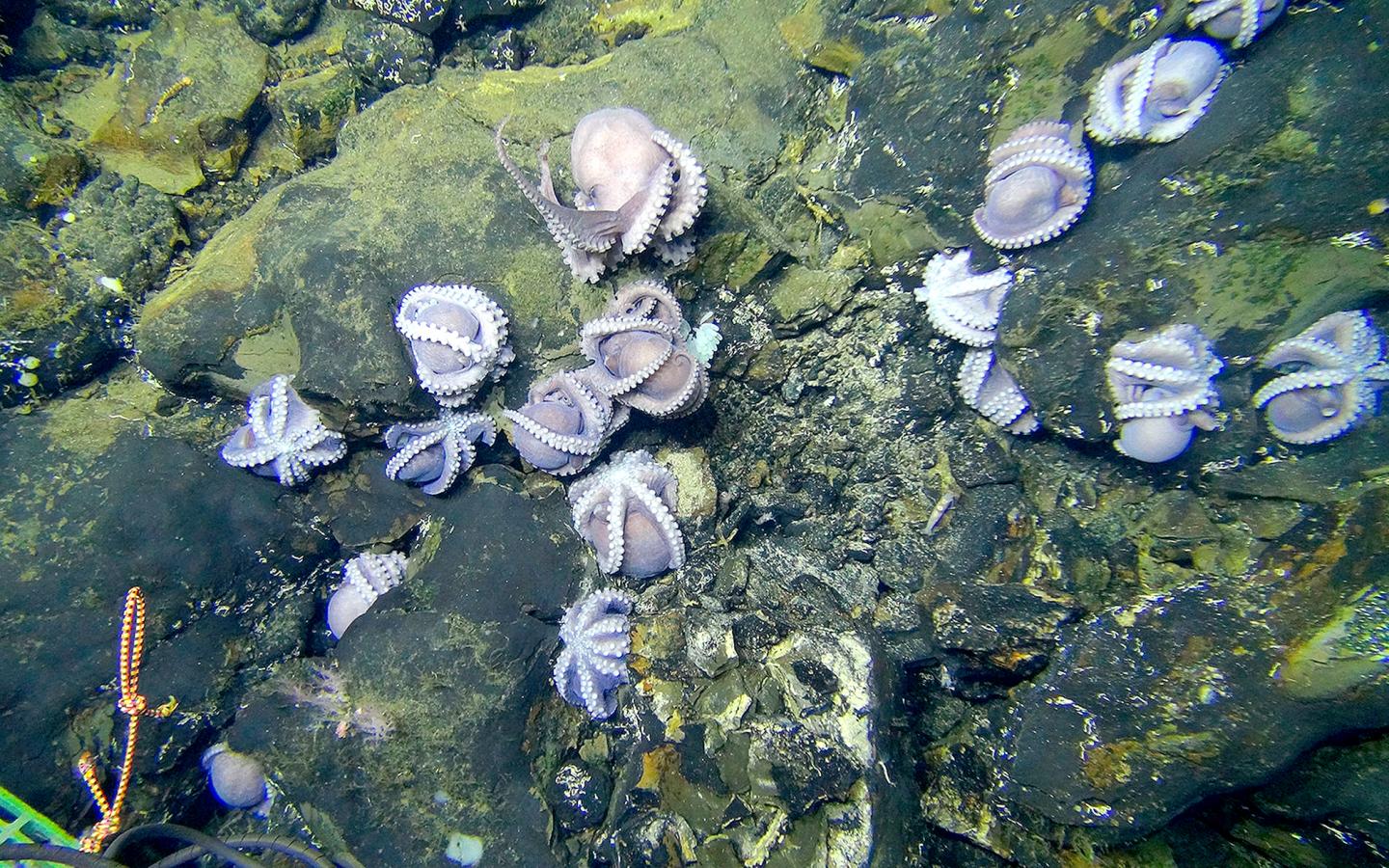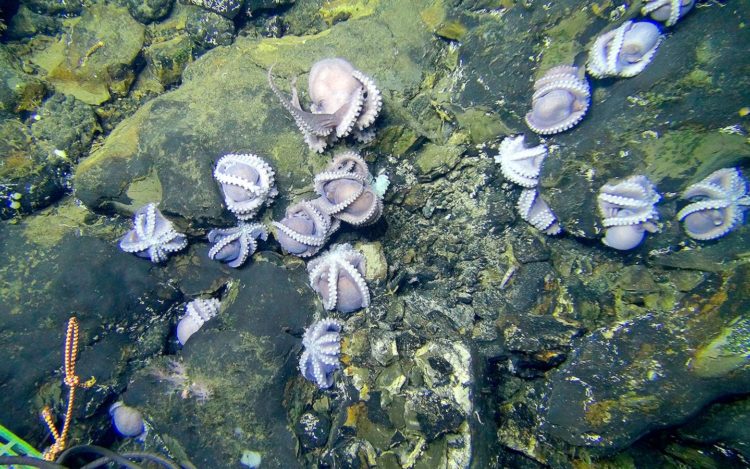
Credit: Woods Hole Oceanographic Institution
The essential roles that microbes play in deep-sea ecosystems are at risk from the potential environmental impacts of mining, a new paper in Limnology and Oceanography reports. The study reviews what is known about microbes in these environments and assesses how mining could impact their important environmental roles.
“The push for deep-sea mining has really accelerated in the last few years, and it is crucial that policy makers and the industry understand these microbes and the services they provide,” said Beth Orcutt, a senior research scientist at Bigelow Laboratory for Ocean Sciences and the lead author of the study. “This paper establishes what we know and suggests next steps for using the best science to evaluate the impacts of this new human activity in the deep sea.”
Microbes across the seafloor are responsible for essential ecosystem services, from fueling the food web to powering global nutrient cycles. Environments that are promising for mining are also often the sites of globally-important microbial processes and unusual animal communities – and they are very slow to recover from disturbance.
Orcutt and her coauthors analyzed four types of deep-sea mineral resources, including the metal-rich rocks that stud underwater mountains and lie on the seafloor. Their findings indicate that the likely impacts of mining on microbial ecosystems vary substantially, from minimal disturbance to the irreversible loss of important ecosystem processes.
Hydrothermal vent systems, for example, are particularly sensitive – and valuable. The hot, mineral-rich waters support robust communities of microbes that form the vital base of the food web in these ecosystems. The extreme environmental conditions also foster rich genetic diversity among the microbes, making them promising candidates in the search for anti-cancer drugs and other new biotechnology applications.
“These microbes have incredible potential to inspire new solutions to all sorts of medical and technical challenges we face today,” said Julie Huber, a scientist from the Woods Hole Oceanographic Institution and co-author of the new study. “But if we damage or destroy a habitat like a hydrothermal vent, we lose the diverse the pool of microbial genetic information from which we can find new enzymes or drugs.”
Consumer demand for products like smartphones and electric cars is driving the rapidly growing interest in deep-sea mining for metals like cobalt and rare earth elements, which are used in lithium-ion batteries. The International Seabed Authority of the United Nations is working to establish guidelines for countries and contractors to explore the seafloor for minerals, and to eventually mine them.
While guidelines for licensed exploration already suggest that site assessments should include how much microbial life is present, the researchers on the new study emphasize that it is equally important to determine what roles the microbes are playing and assess how they would be impacted by mining.
“It is important to understand the potential impacts of mining activities to figure out if they should occur and how to manage them if they do,” said James Bradley, a scientist at Queen Mary University of London and co-author on the paper. “This is an important conversation between policy makers, industry, and the scientific community, and it’s important that we work together to get this right. Once these ecosystems are damaged, they may never fully recover.”
###
This study was supported by the NSF-funded Center for Dark Energy Biosphere Investigations (C-DEBI) and the Sloan Foundation-funded Deep Carbon Observatory.
Bigelow Laboratory for Ocean Sciences is an independent, nonprofit research institute located in East Boothbay, Maine. From the Arctic to the Antarctic, Bigelow Laboratory scientists use cutting-edge techniques to understand the ocean’s mysteries, address its challenges, and unlock its hidden opportunities. Learn more at bigelow.org, and join the conversation on Facebook, Instagram, and Twitter.
Media Contact
Steven Profaizer
[email protected]
207-315-2567 x103
Original Source
https:/
Related Journal Article
http://dx.





